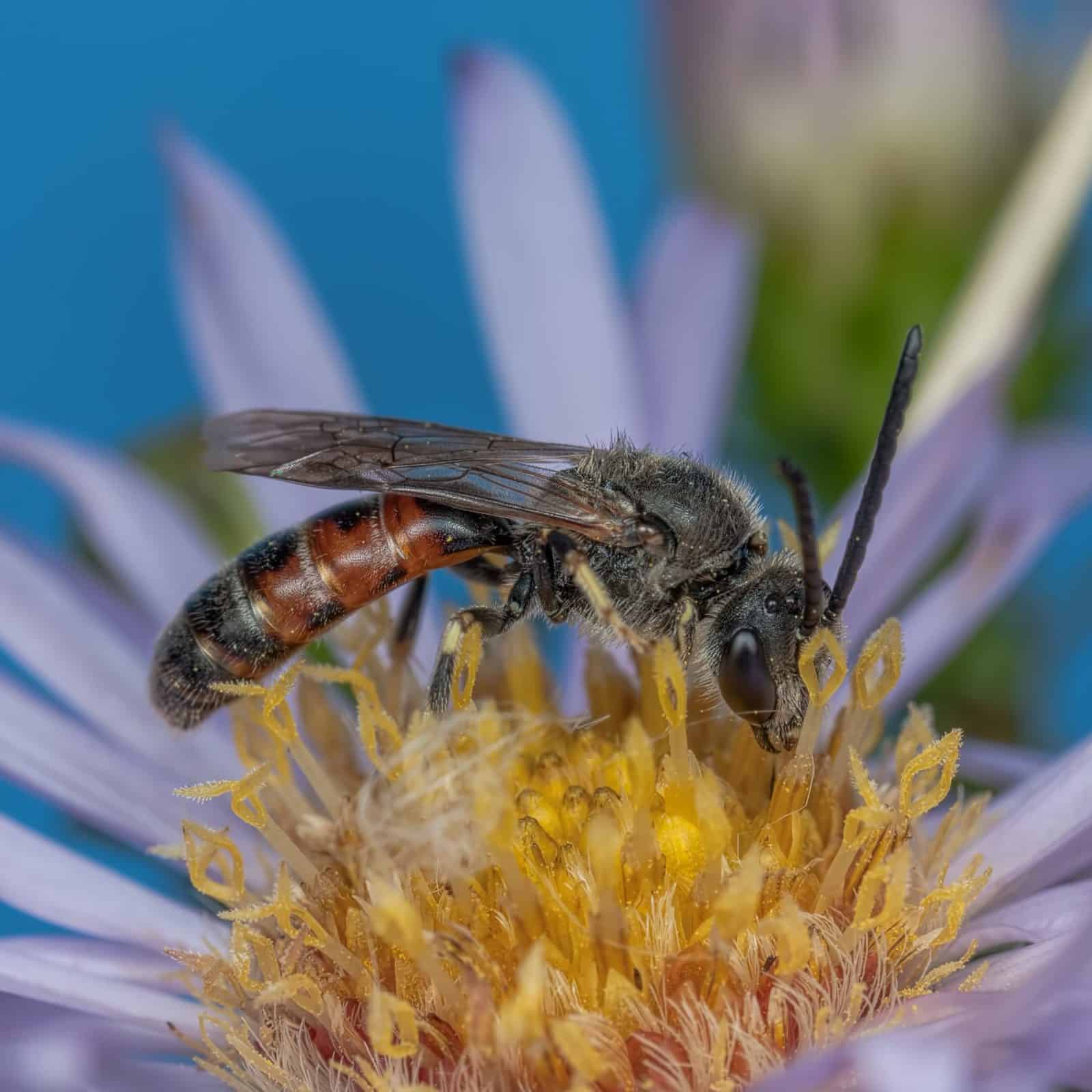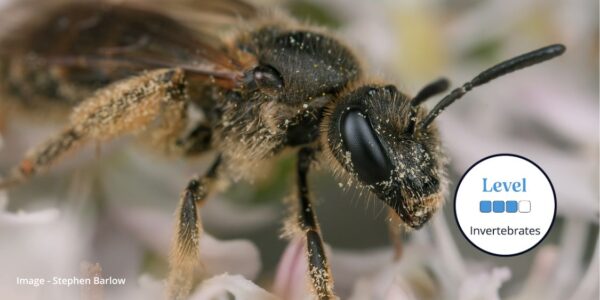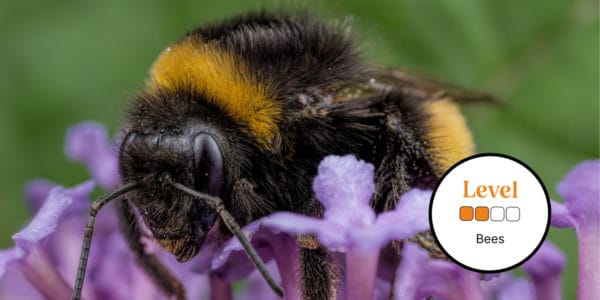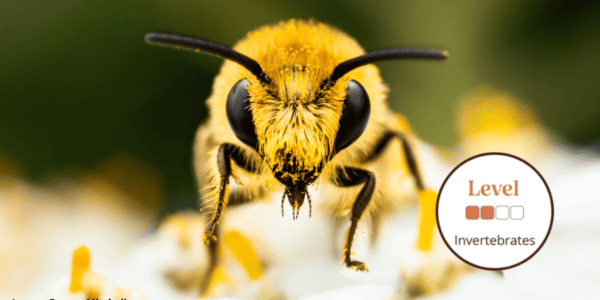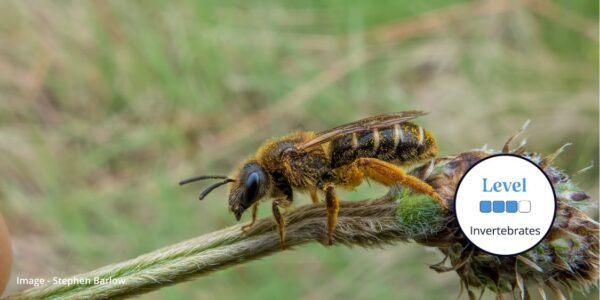This introductory through to beginner online course will introduce you to our planet’s most important pollinators, including aspects of their biology and ecology.
There are around 270 species of bee in Britain, although many are under-recorded, under-appreciated and under-loved! Found in a range of habitats, bees have fascinating life histories and ecosystem roles. If you’re interested in finding out more about bees but don’t feel ready for a beginner’s identification workshop, then this is the course for you.
What will be covered in this course?
- Bee Biology
- Bee Ecology & Diversity
- Bees as Pollinators
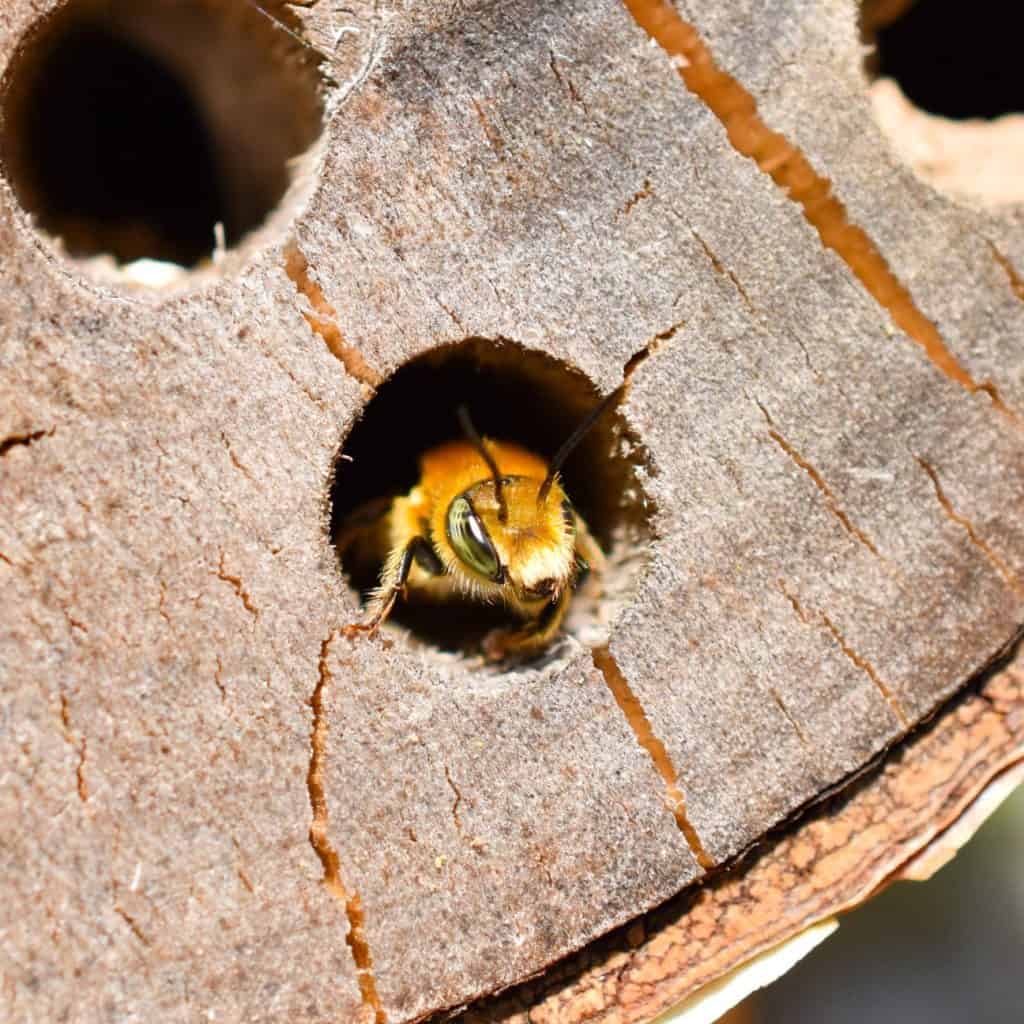
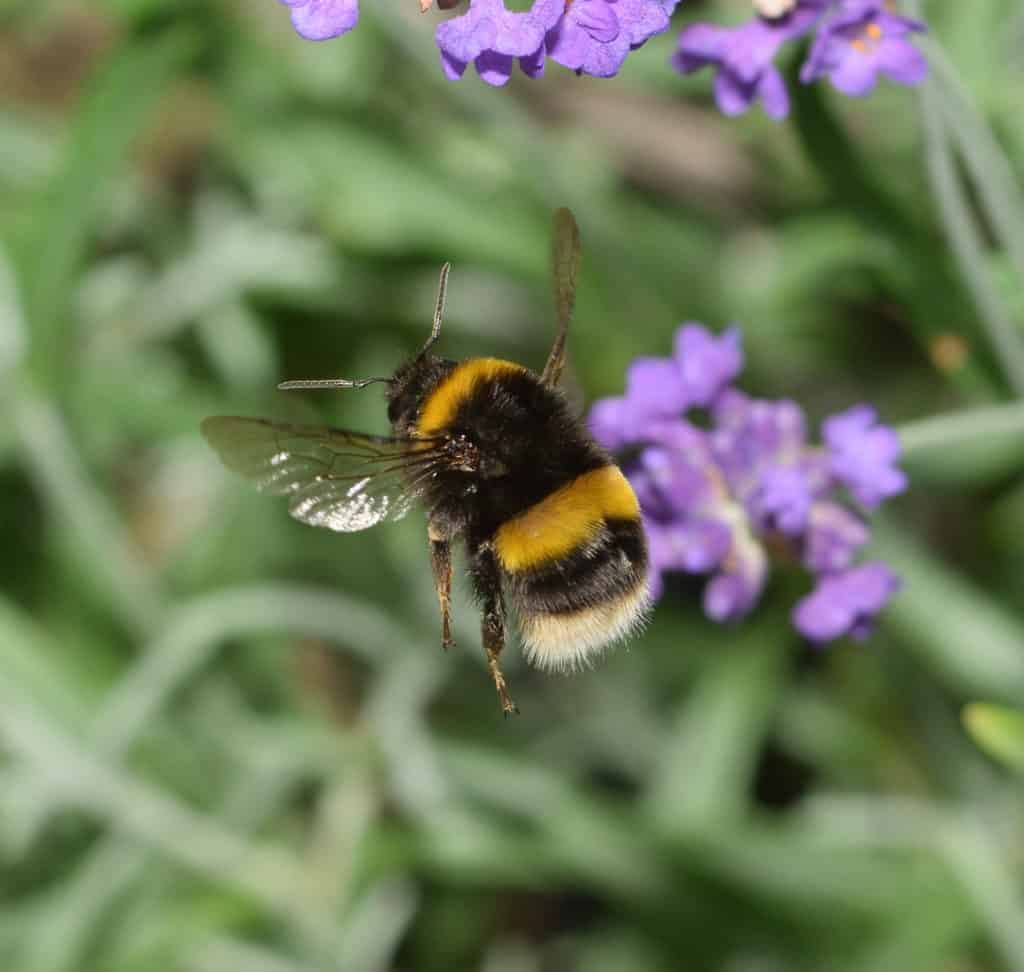
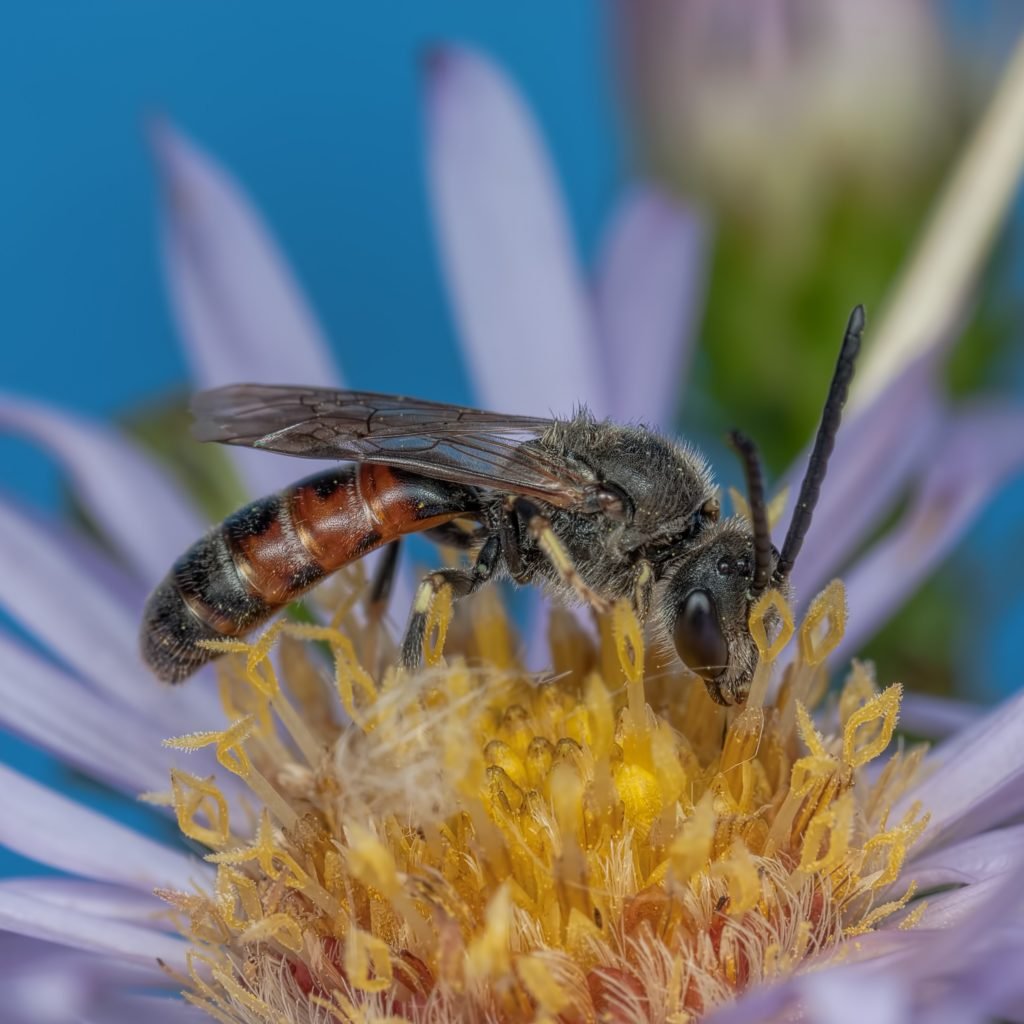
Read More
Discovering Bees is a very gentle introduction to our planets most important pollinators, introducing aspects of their biology and ecology and it aims to give learners the skills and confidence to learn more about the lives and ecological role of bees.
This is a 3-week online course covering 3 topics, for which you will complete a variety of self-led online resources and activities. Each topic is then concluded with an interactive Zoom workshop to complement the online content. Time commitment is approximately 3-5 hours a week and an E-certificate is provided upon completion.
By the end of the course, you will be able to:
- Name the main morphological features of a bee
- Distinguish a bee from other invertebrate orders
- Be able to explain the role of bees within the ecosystem
- Understand the process of pollination and how bees are involved In it
- Know the different pollen collecting mechanisms of different bee groups
What is covered in this course?
Bee Biology will discuss where bees fit into the animal kingdom, their role as beneficial insects and how they have evolved into either solitary or social lifestyles. We will also look into their anatomy, life cycles and communication, as well as the mechanisms they use to defend themselves from predators.
Bee Ecology & Diversity will look into the basic ecological needs of bees and the habitat requirements they depend on in order to survive. We will also look to give an overview of the species diversity of bees in the United Kingdom and the insects which mimic bees for protection.
Bees as Pollinators will look at the process of pollination, its importance for sustaining a healthy environment and the significant role bees play in this process as the worlds most important pollinators. We will also touch on the different ways in which solitary and social bees contribute to pollination services and the specific flower preferences of some widespread species.
You can find out more about this course by reading our ‘Discovering Bees Online’ blog.
Who Should Attend? – Nature enthusiasts, students, rangers, early career ecologists.
Knowledge Level – Introductory-Beginner. Level descriptors can be found on the following webpage: Framework and Course Level Descriptors
Prior Knowledge – No existing knowledge or experience is needed for this course, just a willingness to explore and learn.
Please note that bookings will close 2 working days before the course start date to allow for all participants to be enrolled to the online platform – bookings will not be taken after this time.*
*Bookings will close sooner if course capacity is reached.
Understand how our online courses are delivered here.
Live Webinar Information
There are 3 webinars for this course, taking place weekly. Please see the date listing below for the day and time.
Please note – webinars will be recorded and uploaded to the virtual learning platform for learners unable to attend.
About the Tutor
Richard Dawson
Richard’s entomological focus is on Aculeate hymenoptera (especially solitary bees and wasps) but he also dabbles in diptera, colecoptera and parasitic hymenoptera. He works as a pollinator surveyor and volunteer mentor for UKCEH’s PoMS scheme in Wales alongside undertaking field work for Buglife and BTO. He is especially interested in the ecological links between species and the fascinating interactions these create.
Richard’s background is in design and visual art and he is dedicated to sharing his passion for pollinators through public and creative engagement and promoting citizen science, biological recording and facilitating everyone to become involved with positive environmental and conservation action.
He is an active member for the Bees Wasps and Ants Recording Society (BWARS) and has delivered engagement projects linked to environment and invertebrates for RSPB, Chester Zoo, numerous local councils and most recently the Gwent Green Grid project.
Richard designs and makes accessories for entomologists and field surveyors as ArthroPods.co.uk.
Example Timetable
Timetable
Week 1: Bee Biology
Self-study material available from course start date
Week 1 live webinar at the end of week 1
Week 2: Bee Ecology & Diversity
Self-study material available: after week 1 webinar
Week 2 live webinar at end of week 2
Week 3: Bees as Pollinators
Self-study material available after week 2 webinar
Week 3 live webinar at end of week 3
The final deadline to complete any outstanding assignments and self-study components 2 weeks after the final webinar
Time commitment: This course will require approximately 3-5 hours of your time each week. This includes covering course materials on our Moodle learning platform and the zoom session.
What's Included
The course has been carefully created to help you continue to build on your knowledge as the course progresses. With content crafted to the online Moodle Platform and bespoke to the Field Studies Council.
The course includes:
- 45-minute interactive weekly Zoom workshops to connect with the tutor and other participants
- Expert tuition for which the Field Studies Council is renowned
- Activities to work on independently in advance of each Zoom workshop
- Tailored course completion certificate
Please note that this course is not a species identification course and will only go as far as categorising British bees by their life histories.
Once registered, you will follow well-illustrated, user friendly ’books’ to pick up knowledge. Quizzes and skill-checks will give you instant feedback on your learning. Forums give students the chance to interact with each other as well as a place to share work.
Bursaries and Subsidies
Student Discount
This course is eligible for a student discount. If you are a current student, please use discount code BioStudent20 at checkout for 20% off all Biodiversity courses.
Natural History Bursaries
There are a number of natural history bursaries available to help with the cost of your course. To find out if you and your chosen course are eligible, read more here.
Before You Attend
Accessing Your Course
- Once you sign up you’ll receive an email at least 24 hours in advance of the course opening with details of how to access our easy-to-use platform, Moodle.
- Moodle can be accessed through a browser or an app.
- Webinars are via Zoom so you won’t need any new software to attend
Recommended Devices
It is recommended that you access your course through a PC or laptop. Please be aware that there will be reduced functionality if you decide to access the course through a tablet or smartphone. The Field Studies Council is unable to email content directly to you.
Opportunities to attend this course
This course is not currently available to book. Dates will follow soon.
Sign up to our Email Newsletter
Progress Your Learning
This is a training course from the Field Studies Council, delivered by expert tutors with an approachable learning style. After attending this course, you may like to progress your learning with further relevant courses or branch out into other areas of natural history. The Field Studies Council offers both online and in-person courses, so you can choose the learning style that suits you best.
The course gives you the opportunity to immerse yourself in a new subject and acquire novel skills. Our online portal gives you time to study at your own pace and fit the lessons around your own schedule.
If you have any questions about our online courses please check our Frequently Asked Questions or email [email protected]
Group Bookings Made Easy
If you have a group of 10 or more individuals wanting to complete one of our courses, our team are available to discuss your options – from discounts to private team courses. Find out more!

